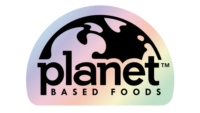The American Supermarket
As a concept emerged 75 years ago in the ’30s, dramatically changing the system for delivering food to consumers — especially fresh meats. Wichita, KS-based Cargill Meat Solutions Corporation (CMS) also staked its claim in the meat-processing arena in the 1930s as Excel Packing Company — the beef processing operation that seeded their multi-protein business of today.
Thanks in part to the innovative supermarket business model, CMS — born as a beef company — has grown into a global umbrella organization for marketing fresh, frozen, and value-added beef, pork, and turkey in a range of cuts, ingredient formulations, and packaging options, with various distribution channels. Cooked and marinated meats complement fresh meats, and more than a dozen brands tout the company’s production collection.
CMS changed its name from Excel one year ago, but kept the Excel brand as a key business-to-business identification due to its familiarity and equity in the global meat industry.
“While our name changed, our core did not,” confirms John Niemann, CMS group brand manager, Excel fresh meats. “CMS strives for better people, products, and services to enable customers sustainable growth.”
And a key element of this vision is tied to ground beef category specialist aspirations.
“For years the industry viewed ground beef as a by-product,” explains Charlie Fox, CMS vice president and business manager, ground beef. “We see ground beef as a key product line for our retail and food service customers. Business gets tougher every year, and we have to help our customers grow their ground beef business. That is about more than just products.”
Although the CMS strategy is designed to replenish empty supermarket meat cases, it also strives to help retailers drive their own sales growth. Working with customers to find unique business solutions is one example.
“We want to be in sync with our customers,” Fox continues. “We sit down with customers who are willing to share information so that we can determine how to help them. We look closely at the economics of their business. We discovered that the more we share with each other, that more innovative ideas emerge. There may be product mixes or marketplace subtleties that retailers haven’t capitalized on yet.”
One such example is the REDiFresh packaging process developed by CMS. The REDiFresh process is an innovative packaging concept used for case-ready patties in varieties including ground chuck, ground sirloin, ground round, and specific lean point ground beef. Benefits include better texture and flavor, a longer “fresh” color in the meat case and faster counter recovery. “Leak-proof packaging is an outstanding feature for consumers,” Fox says. The REDiFresh process extends ground beef’s salability in the meat case, which should help increase sales.
It’s also about getting the right package at the right time to the right customer, Niemann says. CMS also invested heavily in plant floor technology, systems, and processes to be sure quality products are produced and delivered.
“We find that as we get closer to customers, the ante goes up, and solutions are more complex,” Niemann says. “We are dedicating more time and people to understanding customers’ business, strategies, tactics, processes, and economics. One of our key strategies is to be sure we are aligning with customers where we have a shared vision of consumer satisfaction.”
Aligning its business with customer needs also means tapping into business tools, such as “consumer insights” that CMS generates from third-party market research.
“Although ground beef is often sold on lean points alone, we are finding that consumers are also interested in things such as source grind, which means ground chuck, round, or sirloin,” Fox explains. “There are some consumers who want to know exactly where their ground beef comes from in terms of specific primals. They are even willing to pay a premium to get this.”
Investing in people, products, and processes, while aligning to meet customer needs, is important for CMS not just in ground beef, but across its other businesses.
Its business platform comprises Cargill Beef, which includes cattle-feeding and fed-cattle processing; Cargill Taylor Beef, the mature-cattle processing business; Cargill Pork, which includes swine production and pork processing; Cargill Case Ready; Cargill Food Distribution, which is a network of food distribution warehouses in the United States; Cargill Value Added Meats, which includes the former Emmpak Foods and Cargill Turkey Products; Cargill Beef Australia; and recently acquired Finexcor in Argentina. One of 13 business groupings within the Minneapolis-based corporate Cargill Incorporated family of companies, the CMS portfolio of operating units collectively generates annual sales of more than $15 billion. The worldwide CMS business operation, with its 33,000 associates, comprises 24 processing facilities and sales offices in the United States, Canada, and Australia, supported by international business management systems in China, Honduras, Japan, Korea, Taiwan, Australia, and Argentina.
Cargill Incorporated — a specialist in distinctive customer solutions in supply chain management, food applications, health and nutrition — is an international provider of food, agricultural and risk-management products and services with 124,000 employees in 59 countries.
“When we combine our knowledge and experience with that of our customer, the two of us gain insights that lead to fresh ideas,” confirms Warren Staley, Cargill Incorporated chairman and chief executive officer. “This approach is helping us become better collaborators and innovators. It also is raising our customers’ expectations and the expectations we set for ourselves.”
The payoff comes with mutual growth for CMS and its customers, especially retailers.
“We believe the perishable department and specifically the meat department can enable retailers to differentiate,” Fox concludes. “For our part, collaborating to improve their overall meat business, starting with the ground beef category, will build customer loyalty and sustainable growth.” NP
Retail perspective
Ground beef represents a sizable portion of sales at fresh meat cases in America’s retail food stores. Profitability is not only tied to quality products, but these days the relationship between retailers and their fresh meat suppliers is a critical factor. Jeff Sahr, corporate meat and seafood director, of Cub Foods in Minneapolis, MN, defines the ideal relationship. He also explains Cub Foods’ approach concerning growth initiatives.
NP: Where does ground beef stand among the entire beef category in terms of sales, drawing customers, and synergistic goals?
Sahr: In regards to the entire fresh beef category, our ground beef program generates a noticeable percentage of our sales dollars and is a significant fraction of our tonnage sold. In the Twin Cities market, Cub Foods has used its ground beef program as a catalyst for creative merchandising and advertising, through the inclusion of items from departments including produce, dairy, and center store.
NP: What distinguishes CMS from other ground beef/beef suppliers in terms of products, services, and innovative programs?
Sahr: CMS has distinguished itself from all other ground beef suppliers in that they are easy to work with, and they provide us with superior product quality, unparalleled customer service, and innovative programs that go beyond the industry norm of just ad support.
The cutting edge technology of the CMS ground beef program has sold itself to both our employees and consumers. They appreciate the value of the extended shelf life and the convenience of the leak-proof packaging. At Cub Foods, our customers can purchase our USDA-inspected ground beef with up to 16 days of cherry-red shelf life remaining — and with exact weight scannable packaging, this program is truly case ready. This means that our ground beef has become a more convenient staple to our customers in that when they take our ground beef home they can expect a flavorful, wholesome, bright red product for the entirety of its extended shelf life.
Cargill Meat Solutions has also provided us with marketing and category management services that have aided in the growth of the ground beef category. In the area of innovative programs, CMS has worked closely with the Minnesota Beef Council to promote our ground beef program on a local level, and they have engaged our meat department personnel by featuring sales growth contests and display contests.
NP: How do you characterize the ideal relationship with your suppliers in view of the demand for healthier products, especially leaner meat, and more competitively priced supplies?
Sahr: Today the demand for leaner meat, organic, and all natural products are increasing. In order to effectively service Cub Foods, our suppliers must be in tune with the Cub consumer, as well as any market trends that are on the horizon. We at Cub Foods must have supplier-partners that can deliver these value-added products and allow us to maintain competitive price-points in our core SKUs.
NP: Distinctive challenges define food businesses operations in the 21st century. What specific challenges confront retail operations as they seek to satisfy their customers’ meat preferences?
Sahr: The face of the retail meat case has altered more in the last 10 years than it ever has before. As a retailer going forward, we must ensure that we remain cognizant of our core customer base, but yet we have the challenge of meeting the needs of the newer consumer that values assortment, convenience, service, and high-quality products. We at Cub are confronting these challenges with updated meat case sets designed for customer shopability, fresh quality branded meat programs, and providing our consumers with the best positive meal solutions.



Report Abusive Comment